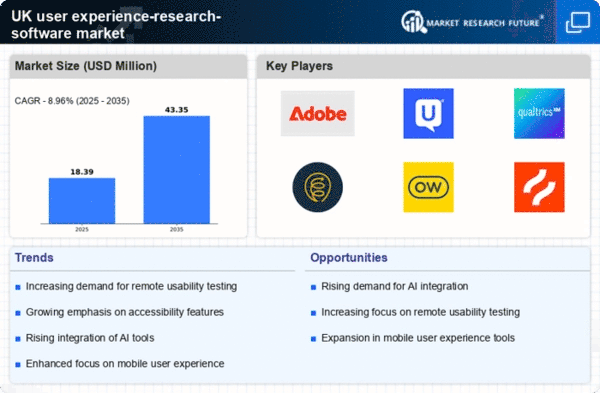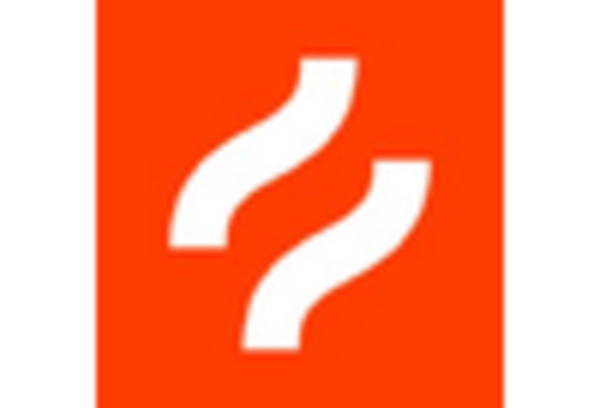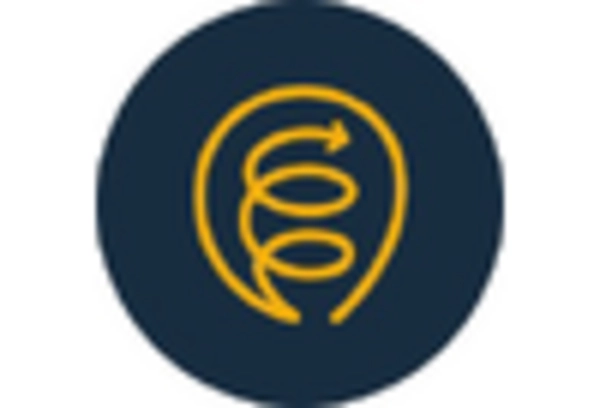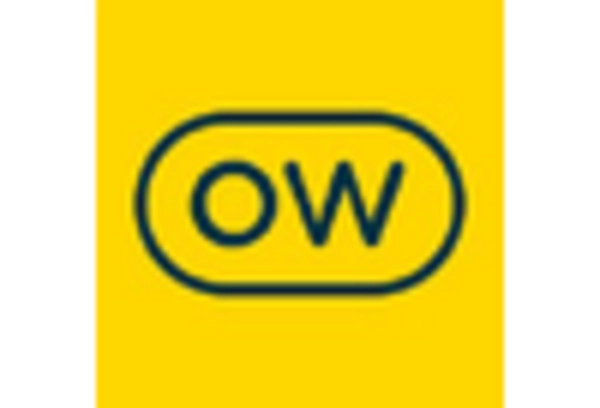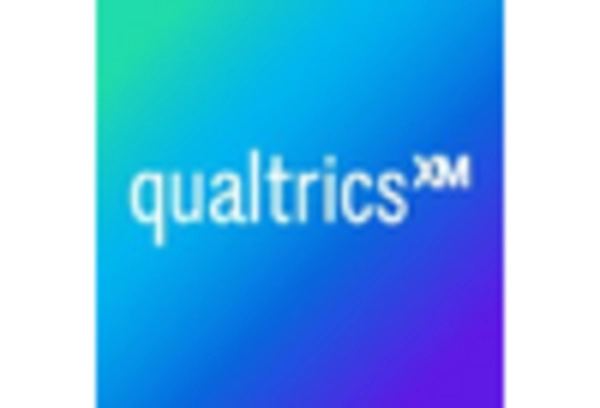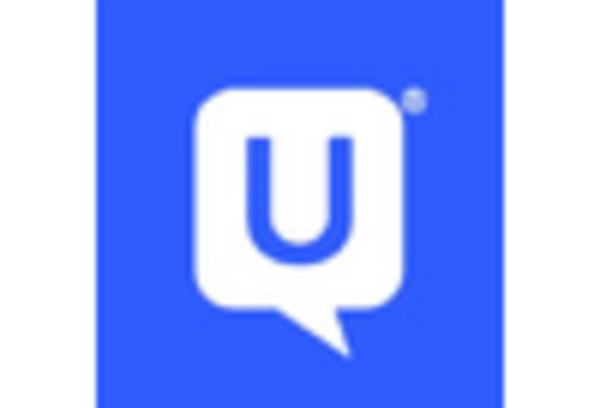Growing Emphasis on Remote User Testing
The user experience-research-software market is adapting to the growing emphasis on remote user testing. With the rise of digital platforms, businesses are increasingly conducting user tests remotely to gather insights from diverse user groups. In the UK, approximately 60% of companies have shifted towards remote testing methodologies, which allow for broader participant recruitment and more flexible testing environments. This shift not only reduces costs associated with in-person testing but also enhances the diversity of feedback collected. As a result, software solutions that facilitate remote user testing are becoming increasingly vital. The user experience-research-software market is thus likely to expand as organizations seek tools that support effective remote testing practices.
Rising Demand for Enhanced User Engagement
The user experience-research-software market is experiencing a notable surge in demand for tools that facilitate enhanced user engagement. As businesses increasingly recognize the importance of user-centric design, the need for software that can effectively gather and analyze user feedback becomes paramount. In the UK, a significant portion of companies, approximately 70%, are investing in user experience research to improve product offerings. This trend is driven by the desire to create more intuitive interfaces and foster customer loyalty. Consequently, software solutions that provide comprehensive analytics and actionable insights are becoming essential. The user experience-research-software market is thus positioned to grow as organizations prioritize user engagement strategies to remain competitive.
Increased Focus on Data-Driven Decision Making
In the current landscape, the user experience-research-software market is witnessing a shift towards data-driven decision making. Companies are increasingly relying on empirical data to inform their design choices, which enhances the overall user experience. In the UK, it is estimated that around 65% of businesses utilize user experience research tools to gather quantitative data, enabling them to make informed decisions. This reliance on data not only improves product design but also optimizes marketing strategies. As organizations seek to leverage data for competitive advantage, the demand for sophisticated user experience research software that can provide in-depth analytics is likely to rise. This trend underscores the importance of integrating robust data collection and analysis capabilities within the user experience-research-software market.
Integration of Cross-Platform Usability Testing
The user experience-research-software market is witnessing a growing trend towards the integration of cross-platform usability testing. As users engage with products across various devices, the need for software that can assess usability across multiple platforms becomes critical. In the UK, it is reported that over 55% of users access services through both mobile and desktop devices, highlighting the necessity for consistent user experiences. Consequently, businesses are investing in user experience research tools that can evaluate performance across different platforms. This trend indicates a potential growth area for the user experience-research-software market, as companies seek to ensure seamless interactions for their users, regardless of the device used.
Rising Importance of User Privacy and Data Security
The user experience-research-software market is increasingly influenced by the rising importance of user privacy and data security. As regulations around data protection become more stringent, businesses are compelled to adopt user experience research tools that prioritize secure data handling practices. In the UK, compliance with regulations such as GDPR has led to a heightened focus on user consent and data transparency. Approximately 75% of consumers express concerns regarding their data privacy, prompting companies to seek software solutions that not only gather user insights but also ensure robust data protection measures. This trend suggests that the user experience-research-software market will continue to evolve, with an emphasis on integrating privacy-centric features into research methodologies.


